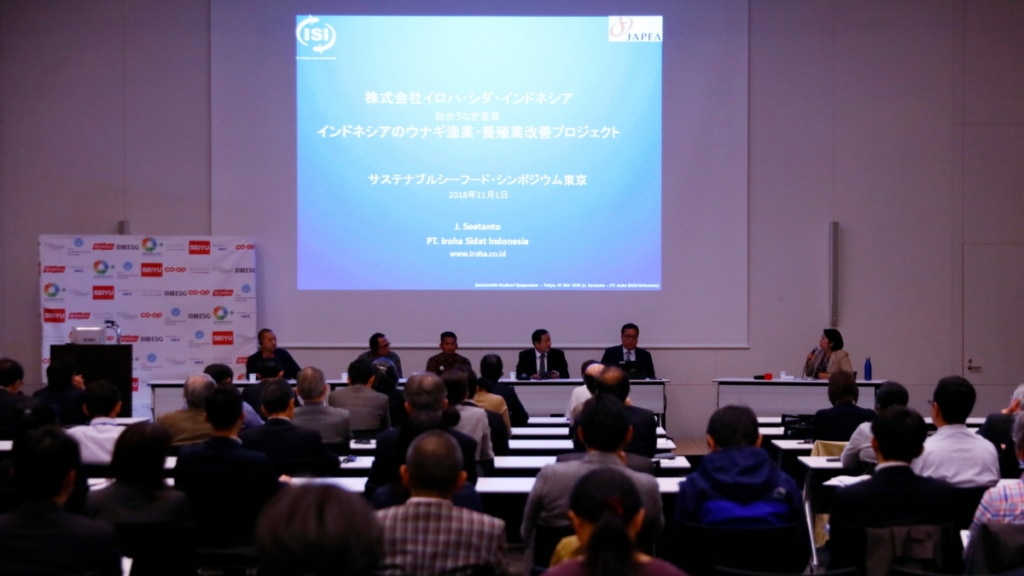
Tokyo Sustainable Seafood Symposium 2018 Report-5
In this fifth report on the Tokyo Sustainable Seafood Symposium, we will introduce the break-out sessions that took place in Room A. Session A-1 introduced Indonesian and Japanese NGOs, seafood companies and universities working together toward a sustainable eel industry; session A-2 shared the collaboration between the first companies in Japan to provide sustainable seafood at their respective workplace cafeterias; and session A-3 presented the promotion of Japanese fishery and aquaculture industries by producers and retailers. All three sessions brought together a wide representation of stakeholders that are expanding sustainability of the seafood industry in their own unique way.
A-1: Designing the Future of Eel Industry
Aiko Yamauchi
Oceans and Seafood Group Leader, WWF Japan
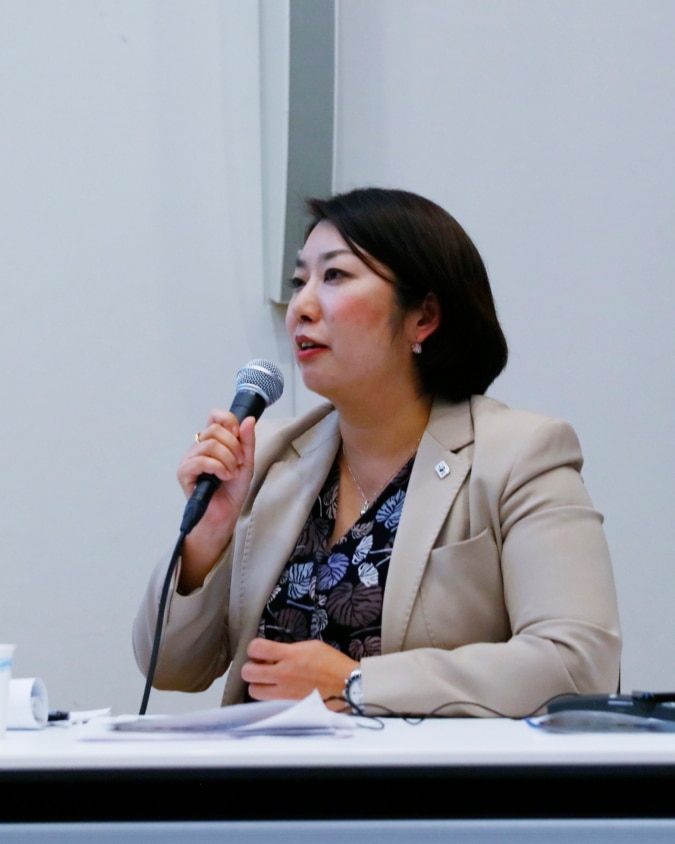
“We are often consulted about endangered eel species but we can only respond that under current circumstances there is no silver bullet to fix it. However, for eel species such as Indonesian eel (Anguilla bicolor), which are not currently endangered but have the potential to be in the future, NGOs including WWF Japan have started to think how we can handle the situation early on.” |
Kenzo Kaifu
Associate Professor, Faculty of Law, Chuo University
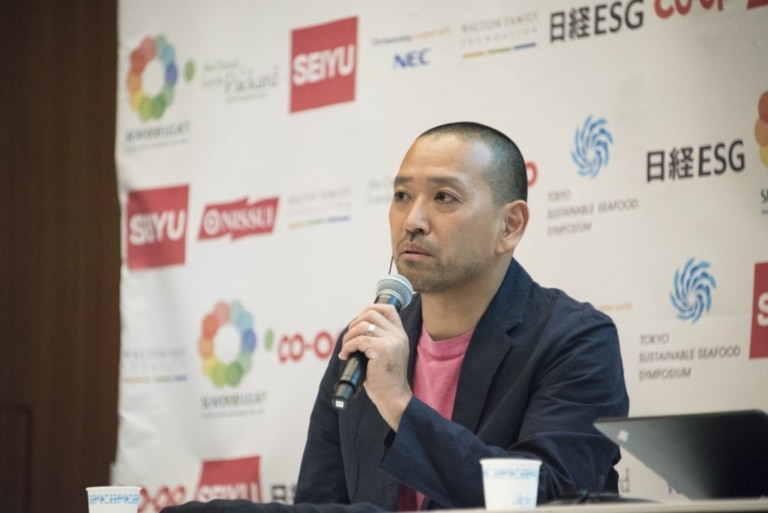
“Currently there are no eel species that can be considered sustainable anywhere in the world. In the case of Japan, it has been very difficult to find Japanese eel (Anguilla japonica) that can be proven to be traceable, making it challenging for consumers to know which product to choose in order to support sustainable use of seafood. I think the significance of this project was that it presented options that follow objective and internationally recognized standards.” |
Yasuyuki Yamamoto
Manager, Group Merchandising Strategy Department, Aeon Retail Co., Ltd.

”We are continuing with the verification of the state of the Indonesian eel stock but if they are at current levels we, as a company, and those that are gathered here today will do everything we can to raise our performance through our products and eliminate any concerns felt by the end consumers.” |
John Soetanto
Vice President of Eel Operation, PT. Iroha Sidat Indonesia
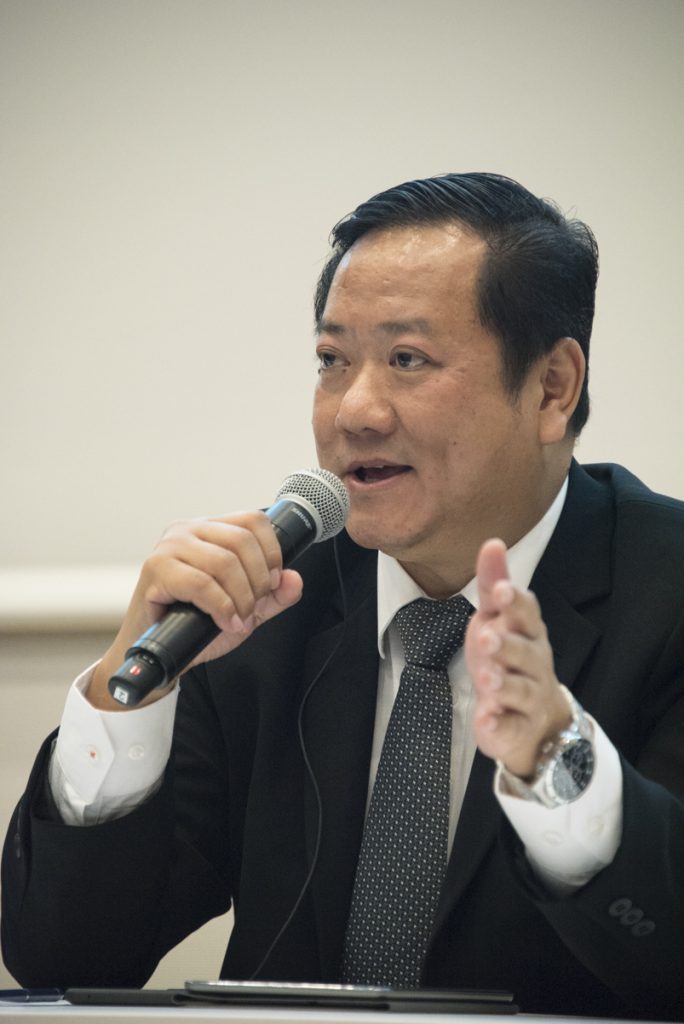
“Our goal is to maintain the sustainability of wild eel stocks. We do not want Indonesian eel to suffer a similar fate with the European eel. With that in mind we began releasing juvenile fish since 2013 and implemented a FIP / AIP under this project for the sustainability of wild eel.” |
Faridz Rizal Fachri
Capture Fisheries Officer, WWF Indonesia

“We support sustainable eel management by performing fisheries and aquaculture improvement program based on Marine Stewardship Council (MSC) and Aquaculture Stewardship Council (ASC) principles. To ensure the sustainability of the glass eel stock, we have initiated to provide a better management practices for fishermen as a guideline to capture glass eel in sustainable way. We support glass eel data collection as well to have better understanding on stock status and subsequently to enable setting catch limit as meanwhile this action is in line with government plan. In terms of responsible aquaculture, we attempt to ensure the production using traceable and sustainable seed source and support company to use resource efficiently during production process.” |
Lili Widodo
The Ministry of Maritime Affairs and Fisheries Indonesia
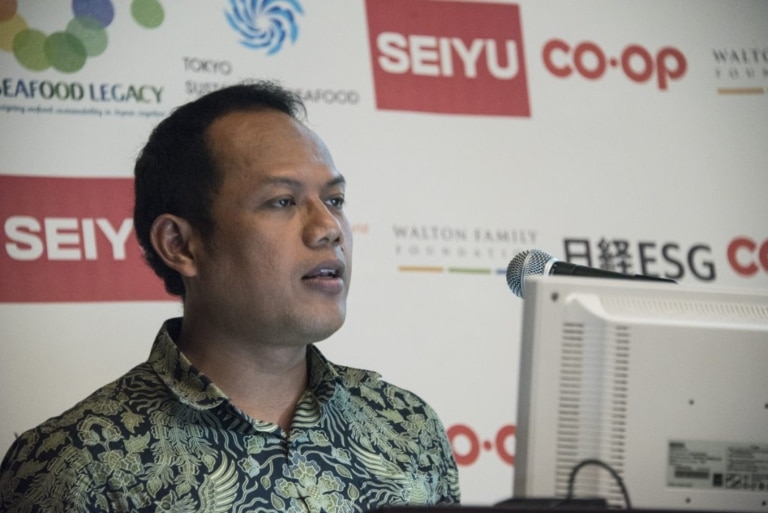
“In regard to eel sustainability, southern Java island developed a management plan, release glass eel, and produce separate statistics for freshwater and marine areas but there are no regulations for the capture of glass eel other than the rule that only glass eel that are larger than 150 grams can be exported outside of Indonesia. However, we are currently discussing the action plan for eel conservation as a country and a glass eel management SOP is expected for implementation next year.” |
A-2: Sustainable Seafood Across Industries – Changing the Corporate Cafeteria
|
Daisuke Matsui
Business Engagement Manager, Seafood Legacy |
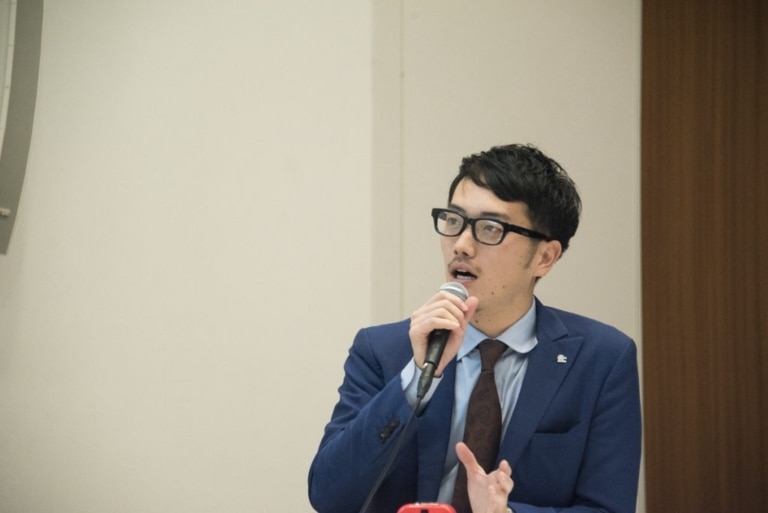
|
“The introduction of sustainable seafood in workplace cafeterias spread rapidly this year, establishing many advanced examples of detailed implementation processes as well as challenges. We hope to continue working with businesses, food service companies and specialized institutions as we look forward to the Olympics and meeting SDG targets.”
Kosuke Kino
Manager, Program Management Section, CSR & Citizenship Department, Groupwide Brand Communications Division, Panasonic Corporation |

|
“Considering that Panasonic has been an official partner for the Olympic games worldwide for the past 30 years, we are in the position to contribute to the legacy building of the Games. Introducing sustainable seafood in the workplace cafeteria is merely the beginning. We will accelerate our efforts to cooperate with other companies to spread the integration of sustainable seafood in more workplace cafeterias.”
Go Shibata
General Manager, Product Quality Center Procurement and Supply Chain, AIM SERVICES CO., LTD. |
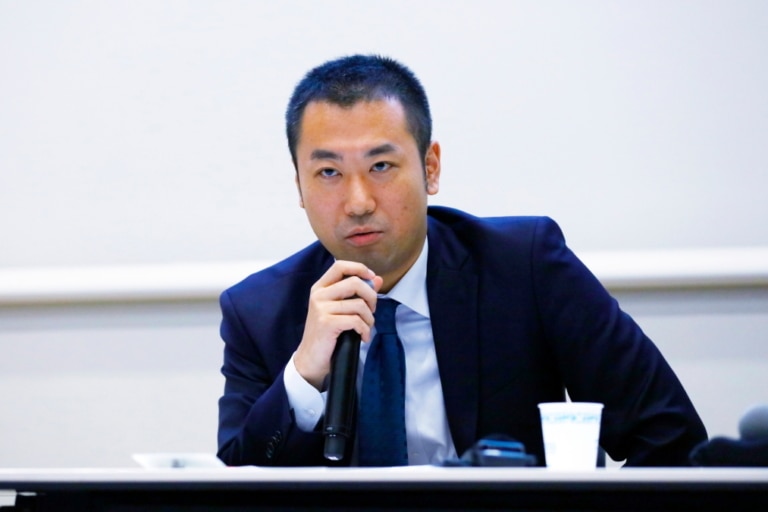
”In regard to SDG categories, we are contribute to Goal 12 – “Responsible consumption and production” and Goal 14 – “Conserve and sustainably use the oceans, seas and marine resources for sustainable development.” We will be promoting horizontal deployment by developing sustainable seafood menu at our headquarters in addition to our field sites.” Kazuya Yoneima |
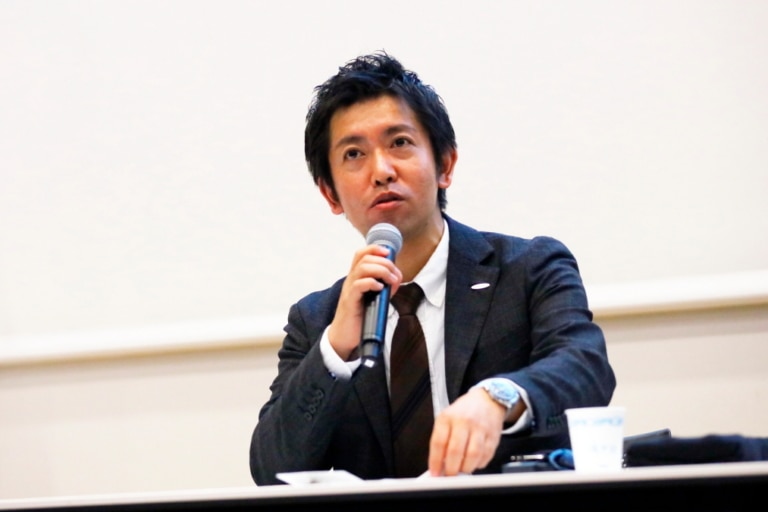
|
“Our company’s management philosophy includes the phrase, “the company only grows when people are happy”, including the four principles of Customers, Colleagues, Community and Environment. As we involve ourselves deeply into ESG and SDGs we would like sustainable seafood to be an important piece that embody our management philosophy.”
|
A-3: How Industry-led Improvement Projects are Changing the Status of Global Fisheries
Shunji Murakami
Japan Program Director, Ocean Outcomes

“We have to do what we can do because we have a shared recognition that all of those that sell, buy and catch fish cannot do business if fish disappear. I think that’s what fishery and aquaculture improvement projects are all about. I hope to continue this work with the framework that business will improve when resources improve.” |
Kumie Wama
Vice President, Corporate Affairs, Seiyu GK
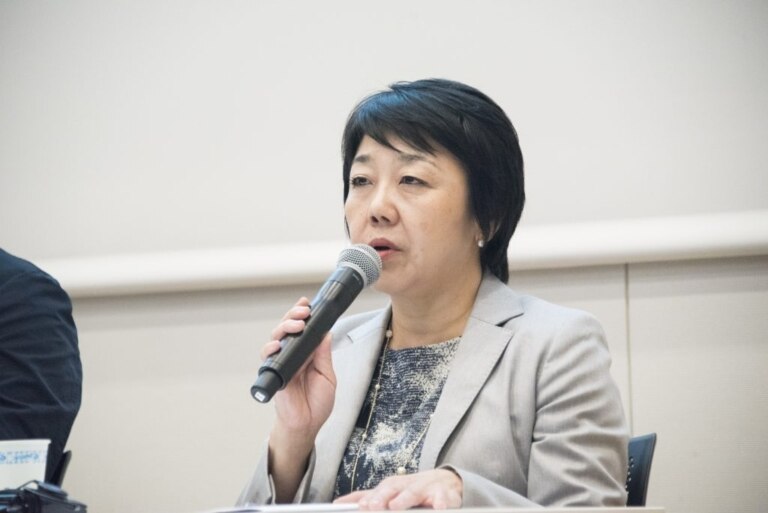
“I feel that being involved in fishery and aquaculture improvement projects is a big merit because we can hear directly from producers and improve our understanding and awareness together with various affiliated company departments. It is important to continue selling AIP coho salmon and FIP albacore tuna and making them Seiyu’s best-selling products so we will continue to participate in these efforts.” |
Kotaro Wakiguchi
4th Generation President, Yamasa Wakiguchi Tuna Company

“Taking on the FIP by ourselves is a very high hurdle but we are able to continue the project because of the support from specialists and the market. We would be grateful if consumers can consider seafood from fishery improvement efforts as one of their purchasing options.” |
Kristin Sherwood
Program Director, FishChoice
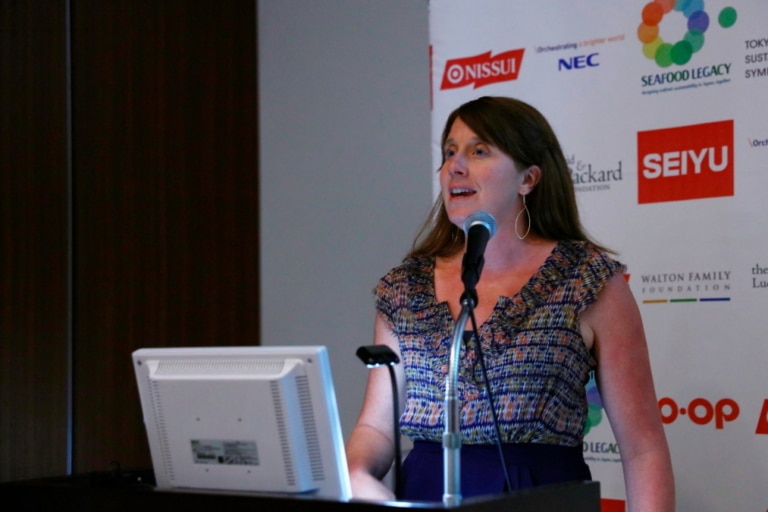
“There are 113 fishery improvement projects currently in existence worldwide, and many more are emerging, especially in Asia and Latin America. More and more companies are committed to sourcing seafood from FIPs and are creating procurement policies that clearly indicate that commitment. FisheryProgress.org provides credible and up-to-date information on FIPs in order to help companies find and track FIPs that meet their policies.” |
Shingo Suzuki
Marukin Co.,Ltd.

“I think that creating a new mechanism like AIPs that allow new technology and different industries to get involved will ultimately make the aquaculture industry better. Unlike wild seafood, our seafood is limited to whether it is managed properly by people so we are working on this project with a goal of being a responsible fish farm.” |





